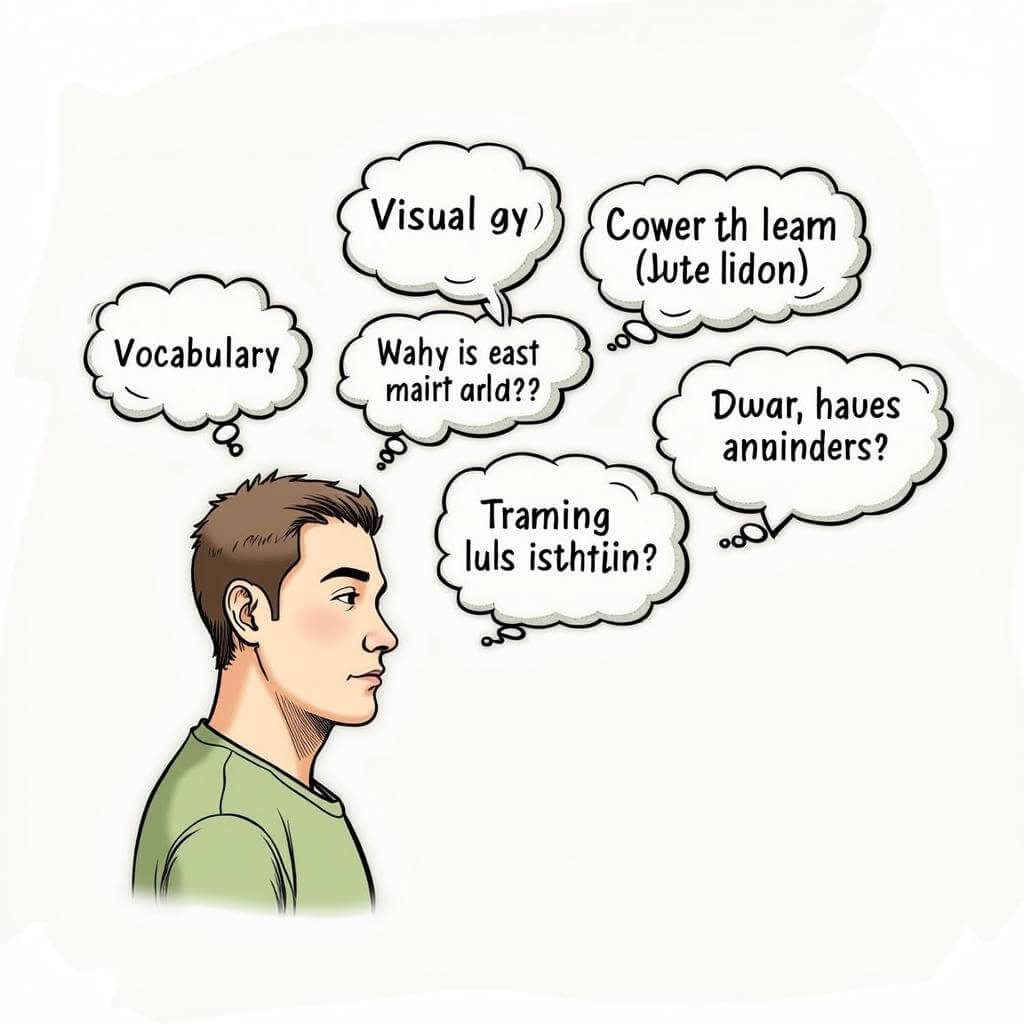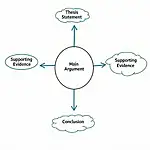Are you struggling with rapid conversations in IELTS Listening? You’re not alone. Many test-takers find fast dialogues challenging, but with the right strategies, you can tackle them with ease. As an experienced IELTS instructor, I’ll share proven techniques to help you confidently handle even the quickest exchanges in the listening test.
Understanding the Challenge of Fast Dialogues
Fast dialogues in IELTS Listening often appear in Section 3, where you’ll encounter conversations between two or more speakers discussing academic topics. These rapid exchanges can be intimidating, but they’re designed to test your ability to process information quickly and accurately.
Why Fast Dialogues Are Difficult
- Limited processing time
- Multiple speakers with varying accents
- Complex vocabulary and idiomatic expressions
- Overlapping speech and interruptions
To excel in these sections, you need to develop specific skills and strategies tailored to rapid conversations.
Essential Strategies for Handling Fast Dialogues
1. Predict Content and Vocabulary
Before the audio begins, carefully read the questions and anticipate potential topics and keywords. This mental preparation will help you focus on relevant information during the dialogue.
- Analyze question types (multiple choice, gap-fill, etc.)
- Identify key themes and subject areas
- List possible vocabulary related to the topic
2. Develop Active Listening Skills
Active listening involves engaging with the audio content mentally, rather than passively hearing it. This approach significantly improves comprehension and retention.
- Focus on the speakers’ tone and emphasis
- Visualize the conversation as it unfolds
- Mentally summarize main points as you listen
 Active Listening Techniques for IELTS Fast Dialogues
Active Listening Techniques for IELTS Fast Dialogues
3. Master Note-Taking Techniques
Effective note-taking is crucial for managing fast dialogues. Develop a personal shorthand system to quickly jot down essential information.
- Use abbreviations and symbols
- Focus on keywords and main ideas
- Organize notes spatially on the page
“Efficient note-taking is the backbone of successful IELTS Listening. It’s not about writing everything, but capturing the essence quickly,” says Dr. Emma Thompson, IELTS examiner and language expert.
4. Practice with Varied Accents and Speeds
Expose yourself to a wide range of English accents and speaking speeds to improve your ability to understand fast dialogues.
- Listen to podcasts from different English-speaking countries
- Watch TED Talks and academic lectures
- Use IELTS-specific listening resources at various speeds
5. Improve Your Concentration
Maintaining focus during fast dialogues is essential. Train your mind to stay alert and engaged throughout the listening test.
- Practice mindfulness and meditation
- Eliminate distractions during study sessions
- Take regular breaks to maintain mental freshness
Advanced Techniques for Mastering Fast Dialogues
1. Anticipate Speaker Transitions
In multi-speaker dialogues, being able to predict when speakers will change can help you stay on track.
- Listen for transitional phrases like “What do you think?” or “How about you?”
- Pay attention to changes in tone or pitch
- Practice identifying different voices quickly
2. Recognize Discourse Markers
Discourse markers are words or phrases that structure and connect ideas in speech. Identifying these can help you follow the flow of fast conversations.
- Common markers: “however,” “on the other hand,” “in addition”
- Practice spotting these in various listening materials
- Use them as signposts to guide your understanding
 Discourse Markers in IELTS Listening
Discourse Markers in IELTS Listening
3. Develop Inference Skills
Sometimes, you’ll need to infer meaning from context, especially when speakers talk quickly or use idiomatic language.
- Practice understanding the gist without catching every word
- Look for contextual clues in the conversation
- Improve your vocabulary to better guess unfamiliar words
4. Master Parallel Processing
Train your brain to listen and write simultaneously, a crucial skill for keeping up with fast dialogues.
- Start with slower audio and gradually increase speed
- Practice transcribing short audio clips
- Do gap-fill exercises while listening in real-time
“Parallel processing is like juggling – it takes practice, but once mastered, it becomes second nature,” explains Professor James Lee, cognitive linguist and IELTS preparation expert.
5. Utilize Stress and Intonation Cues
Speakers often emphasize important information through stress and intonation, even in rapid speech.
- Listen for emphasized words or phrases
- Notice changes in pitch or volume
- Use these cues to identify key points quickly
Practical Exercises to Improve Fast Dialogue Comprehension
- Speed listening: Gradually increase the playback speed of English audio content
- Shadowing: Repeat what you hear immediately after the speaker, matching their pace
- Dictation races: Transcribe short, fast-paced audio clips against a timer
- Multi-tasking drills: Listen to audio while performing simple tasks to improve focus
- Accent variety challenges: Practice with a different accent each week
Common Pitfalls to Avoid in Fast Dialogues
- Fixating on missed words or phrases
- Neglecting to read ahead in the questions
- Losing focus during speaker transitions
- Writing too much and missing subsequent information
- Panicking when encountering unfamiliar accents or vocabulary
Remember, even native speakers don’t catch every word in fast conversations. Focus on understanding the main ideas and key details.
Conclusion: Confidence Through Practice and Strategy
Handling fast dialogues confidently in IELTS Listening is a skill that can be developed with the right approach and consistent practice. By implementing these expert tips and techniques, you’ll be well-equipped to tackle even the most challenging conversations in the test. Remember, the key is to stay calm, focused, and strategic. With time and effort, you’ll find yourself navigating through rapid exchanges with ease and confidence.
Frequently Asked Questions
How can I improve my concentration during fast IELTS Listening dialogues?
To enhance concentration, practice mindfulness techniques, eliminate distractions during study sessions, and take regular breaks. Additionally, engage in focused listening exercises daily to build mental stamina.
What’s the best way to practice for fast dialogues in IELTS Listening?
The most effective way is to expose yourself to a variety of fast-paced English content. Use podcasts, TED Talks, and IELTS-specific materials at increased speeds. Practice active listening and note-taking techniques while doing so.
How important is vocabulary for understanding fast dialogues?
Vocabulary is crucial. A broader vocabulary allows you to quickly recognize words in rapid speech. Focus on academic and topic-specific vocabulary, and practice using words in context to improve retention.
Can I ask the examiner to repeat the audio if I miss something in a fast dialogue?
No, the audio is played only once in the actual IELTS test. This emphasizes the importance of developing strong listening skills and strategies before the exam.
How do I manage my time effectively during fast dialogue sections?
Read questions in advance, predict content, and use efficient note-taking techniques. Practice time management in mock tests to get comfortable with the pace of the exam.
Is it necessary to understand every word in fast dialogues?
No, it’s not necessary or realistic to catch every word. Focus on understanding main ideas and key details. Developing inference skills will help you grasp meaning even if you miss some words.
How can I deal with anxiety when facing fast dialogues in the IELTS Listening test?
Regular practice with fast-paced audio will build your confidence. Additionally, use relaxation techniques before and during the test, and remember that even native speakers don’t catch every word in rapid conversations.


